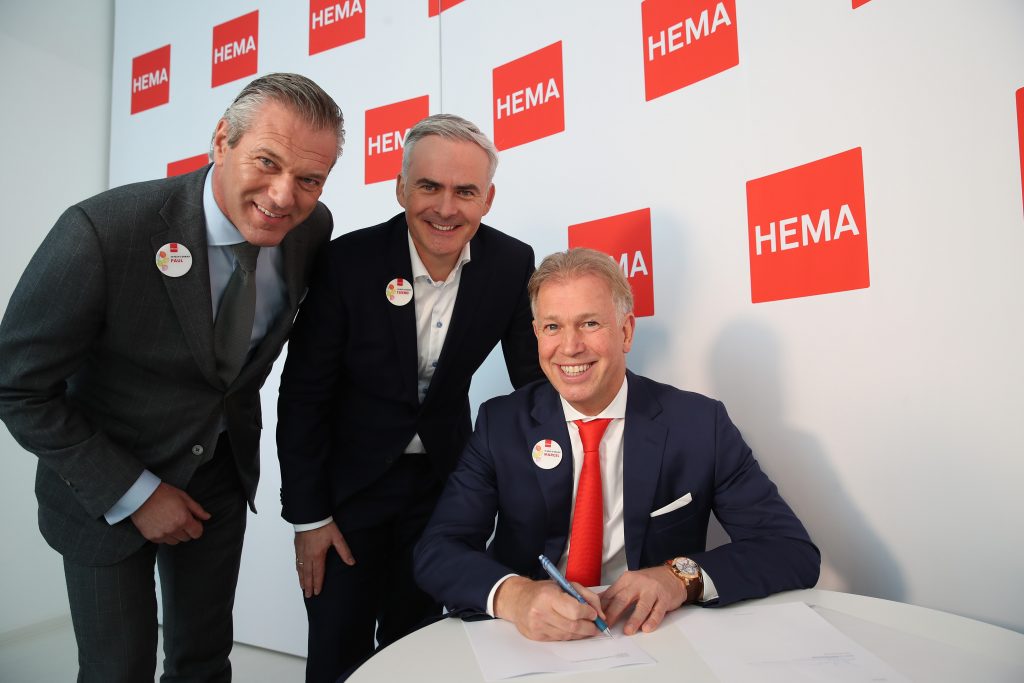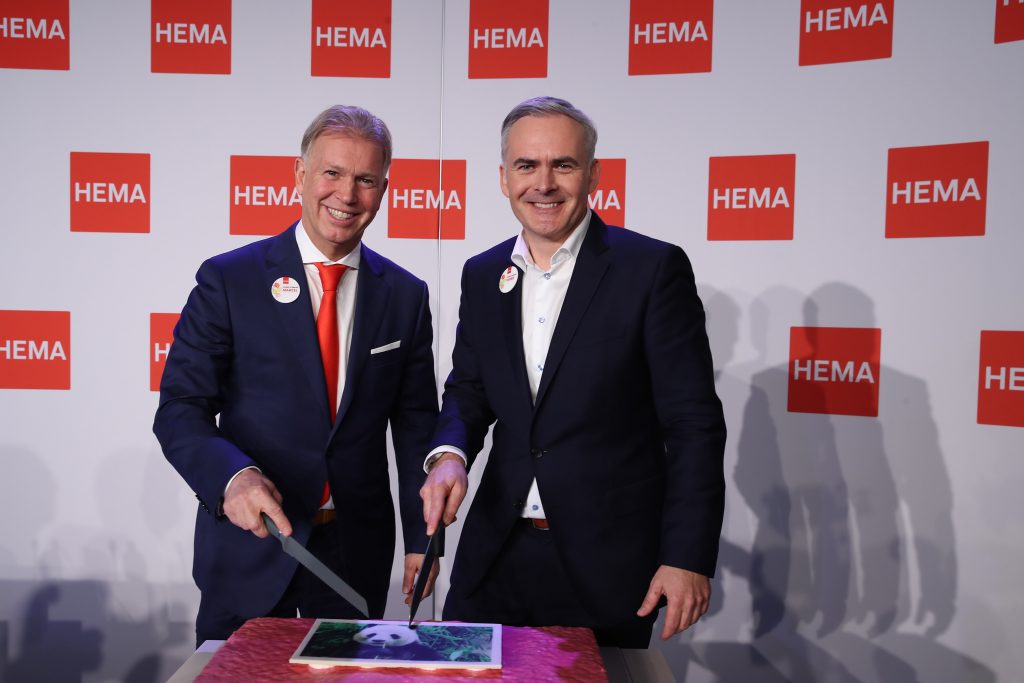Ramphastos Investments is a venture capital and private equity firm which is known for its entrepreneurial spirit and its focus on driving top-line growth in enterprises at all stages of their evolution: from start-ups to scale-ups, high-growth medium-sized companies and mature enterprises. The firm was founded almost a quarter of a century ago by Entrepreneurial Investor Marcel Boekhoorn. Today Boekhoorn is still the driving force behind the company, which is rapidly expanding worldwide with investments on all continents across a broad variety of industries.
Marcel Boekhoorn founded the Dutch-based firm to pursue his passion for entrepreneurship after building a successful career at Deloitte (where he became the Netherlands’ youngest partner). Within a few years, Boekhoorn had exponentially grown the firm’s portfolio and invested capital after achieving spectacular returns through a series of high-profile exits. Boekhoorn rapidly developed a sharp eye for identifying businesses with great potential, as well as the ability to motivate the management teams of his portfolio companies to fully utilize their talents. In the firm’s early years, Boekhoorn also laid the foundational approach towards building businesses that Ramphastos Investments still pursues today. Namely, a focus on driving growth on the revenue side of the equation through buy-and-build strategies, marketplace innovation, internationalisation, management empowerment and strategic partnerships.
Ramphastos Investments currently holds interests in more than 45 companies with a cumulative revenue exceeding €5 billion. The firm employs more than 27,000 people across all continents in a broad range of sectors including financial services, retail, e-commerce, gaming, new materials & advanced manufacturing and energy.

Photograph by Paul Ridderhof
In October 2018, Ramphastos announced its largest deal to date: the acquisition of the Dutch-based retail chain HEMA. HEMA was founded in 1926 and currently has an annual turnover of €1.8 billion with more than 750 stores distributed throughout 9 countries on 2 continents, employing approximately 19,000 people. The acquisition is widely recognised as the most important deal of its kind within the Netherlands this year, and has been praised by the financial press, analysts and the general public.
Boekhoorn was able to negotiate a complex financial agreement with Lion Capital, the London-based private equity firm that bought HEMA in 2007. Furthermore, he was also able to make new arrangements with HEMA’s 96 franchisees regarding long-standing legal disputes between the franchisees and the HEMA management on e-commerce and other matters. Driven by his vision for HEMA’s future, Marcel Boekhoorn has united and inspired the disputing parties to work as a team on crucial matters such as online growth, international expansion, the reduction of HEMA’s debt and the improvement of its profitability.
CEO Today had the opportunity to speak to Marcel Boekhoorn and get an insider perspective on the exemplary story of Ramphastos Investments, Boekhoorn’s deal negotiation tactics and his plans for the near future.
Your most recent large deal, the acquisition of HEMA, was breaking news in The Netherlands with extensive coverage around the world. Did you anticipate this amount of attention?
HEMA is a very well-known and beloved brand in the Netherlands. It was no secret that HEMA was going through a problematic period. I think many were first surprised, then relieved, when we announced that we had bought the company.
HEMA has a unique structure due to the fact that one-third of its 750 stores are owned by franchisees. In some cases, these are second or third generation family businesses and are an important part of the company. In the last couple of years, however, the relationship between HEMA and its franchisees has become increasingly controversial due to disagreements on critical matters such as e-commerce. I knew from the beginning that this acquisition would require careful calculation and consideration if we are to resolve HEMA’s enormous debt issues, as well as the fraught relationship between the HEMA management and its franchisees.
How did you manage to solve these issues, especially in relation to the long-standing legal battles involved?
There was a lot of mistrust and, unfortunately, poor communication. But, I always stay focused on growth points and opportunities, no matter how complicated a situation might be. In the last quarter of a century, we have experienced similar situations in other companies we have worked with and the key to success has always been to motivate people to focus on what they can achieve together. In this specific case, I managed to motivate all parties to focus on the future and on the enormous potential of the HEMA brand.
A hallmark of our approach to reforming businesses is to focus on company leadership. The company’s management and its relationship with its employees is what will make or break the business. Our approach starts by getting the leadership aligned on the new direction, ensuring that they embrace the same vision for the future and share a common understanding of the company’s current identity. We make it a point to support leadership teams and help them to work through such processes. We are proactive, hands-on builders, and this is a role we love to play. To achieve a turnaround throughout the entire organisation, we first ensure clear and consistent communication on the strategy and its benefits. Secondly, we create and demonstrate progress measured against a roadmap consisting of compelling short- and mid-term milestones. Finally, we cultivate a culture of listening and dialogue amongst employees. Never underestimate the importance of the employees’ allegiance to a successful turnaround.

Photograph by Simon Trel
What are other typical challenges one faces on the road to a successful turnaround?
When we consider investing in a business with the aim to turn it around, we look to see how we can add value on the revenue side of the equation – potentially through a buy-and-build strategy, internationalisation, a new product portfolio, a new pricing strategy or by challenging the status quo with the introduction of a new channel strategy. This is how we make the biggest difference and add the most value. It is where we feel most at home as entrepreneurs and business builders.
This sets us apart from much of the private equity world, with its emphasis on the cost side of the business. A revenue-driven strategy will only succeed if the organisation and its operations are structured effectively to deliver the set strategy. Any successful turnaround includes robust cost control and simplified, streamlined operations. Getting this right will always be part of our turnaround strategy. Nevertheless, our fundamental focus remains on catalysing growth through entrepreneurial innovation and management support on the revenue side the equation, rather than driving profits by slashing costs.
Has this strategy proved to be successful?
Absolutely! However, it has been a long and sometimes difficult road. I started without any funding, so my first step was to assert myself as an independent M&A consultant. With my first investment, I made the mistake of taking a minority stake without any control over the direction of the business. Unfortunately, that company folded - but, within a year, I had earned enough to try again. The second time around, I took control of a struggling wooden box manufacturer and turned it around by focusing production on cigar boxes. We produced boxes for global brands such as Davidoff and Tabacalera. Once I sold my shares in that company for a good profit, I finally had enough money to branch out into more investments.
My strategy from the beginning was to focus on unconventional companies with little traction, such as small wheelbarrow or spray can manufacturers, and to build them into market leaders through buy-and-build strategies. By realising significantly higher margins as market leaders through premium pricing strategies, these companies were able to accelerate outsized growth in their sectors.
Today, nearly 25 years later, we have moved on to larger, different and increasingly complex investments with international companies. Our fundamental emphasis is on top-line growth, as well as our preference for taking a majority stake in our investments. We maintain a keen interest in companies, markets, complex transactions and unique situations that others shy away from – these remain our main priorities.
There have been many successful deals since these early years – what would you say are your three biggest achievements?
Many people know our company from our deal with Telfort, a Dutch mobile telecom provider. We acquired Telfort as majority shareholder, grew it exponentially and sold it within 9 months in 2005 to market leader KPN for over €1 billion. It is an impressive example of how we managed to drive profits from €50 million to €150 million in just 8 months by getting the costs under control and focussing on a robust top-line strategy. That deal was a milestone for Ramphastos, earning us our first half billion.
I am also very excited about our investment in Mazarine Energy, a Dutch-based private oil and gas exploration and production company which focuses on early-stage exploration and field development. Mazarine is very active and its rapidly expanding asset portfolio is comprised of exploration licenses in Tunisia and Romania. As a non-executive board member, I follow the developments of Mazarine Energy and the oil and gas sector with great interest. Mazarine has a strong, experienced management team and great investors such as the Carlyle Group and former Royal Dutch Shell Chief Executive Jeroen van der Veer. Van der Veer is one of the most experienced professionals in this field, and we are pleased that he fulfils the role of Senior Advisor to the company.
HEMA is a Dutch icon and I believe it is great for HEMA to have a Dutch owner again. That being said, it is also an international brand with more than 200 stores outside of the Netherlands in many European countries, the United Kingdom and the Middle East. Every week more than 6 million people in the Netherlands visit HEMA; just imagine the global potential for the HEMA brand! Take, for example, the attention this deal received in the Middle East where over a hundred articles on the deal were published online and in print. As a company, we are traditionally active in this part of the world and I see huge opportunities for HEMA in that region. For the Abu Dhabi-store, HEMA partnered with the Apparel Group as an international operator. Together we will accelerate HEMA’s expansion in GCC and open HEMA stores in Dubai and Qatar as early as the first half of 2019.
A hallmark of our approach to reforming businesses is to focus on company leadership. The company’s management and its relationship with its employees is what will make or break the business.
Ramphastos Investments does not work towards a specific exit, but always focuses on the execution of a predefined strategic value creation plan. Can you tell us more about this?
While we do not set a predefined exit strategy, we never buy into an enterprise without having a decent idea of who we are going to sell it to. If we don’t know our exit, we won’t buy it! It is as simple as that. Because we invest our own money, we have no pressure or obligation to sell. Our capital is patient: we are in no hurry and have time to focus on the execution of a predefined strategic value creation plan. When companies continue to grow, sooner or later they will attract buyers. We are all about value creation, and that can take time. We exit when the time is right.
We always want to take majority stakes in order to allow us to do what we do best. Namely, to roll up our sleeves to help company leadership in a hands-on manner as they build their business. As founders, builders and leaders of businesses of all sizes and in all stages of their evolution, our partners have first-hand experience with just about anything one might encounter as an entrepreneur. We usually take a board position in our portfolio companies, working side-by-side with company leadership to shape strategy and, if needed, give them tactical counsel, talent, tools and innovation to deliver on their plans.
Because we build businesses with our own capital, we dare to pursue the high-risk, high-return opportunities that others avoid. We are currently focusing on turning around large international or foreign enterprises that face complex challenges. Unlike typical private equity firms which are satisfied with 25% to 30% IRRs, we aim to drive significantly higher returns. So far, our approach – which plays to our strengths as creative thinkers and pragmatic business builders – has paid off.

Photograph by Paul Ridderhof
Over the years, what has kept the company moving forward? What sets you apart from the competition?
What has kept us moving forward first and foremost is that we absolutely love what we do. We love building businesses. We love wrestling with thorny challenges and innovating collaboratively with management teams to produce successful turnarounds and outsized growth. We love closing deals that make everyone a winner. It has not been smooth sailing every year, but what has carried us through the tough times is a combination of our indestructible optimism, our solution-oriented mindset, our deep respect for one another and our collective creativity. Additionally, we nurture close, trusting relationships with the management teams of our portfolio companies. We are open with one another and all of us are ready and willing to jump in and contribute. We are able to anticipate problems before they surface and tackle them quickly before they spiral out of control.
To truly understand what makes us different, consider our resourcefulness, boundless energy and appetite for challenging the status quo. We thrive on pushing ourselves and our companies to innovate and constantly adapt in order to drive revenue and margin growth. In today’s world, if you do not have the willingness and wherewithal to be agile and to adapt, you are in serious trouble. As financially independent investors, we are free to take risks, tackle problems that others avoid and make the bold moves which result in truly revolutionary growth.
On a more personal note: what is the significance of the zoo that you purchased and your efforts for the preservation of pandas?
The pandas have less to do with business and everything to do with deal-making. The preservation of the species is an issue that is close to my heart. I worked personally, persistently and patiently over 17 years to close a deal which fulfils the dream of providing a home in the Netherlands for two giant pandas. This dream began when I bought an underperforming zoo located to the east of Utrecht and returned it to profitability. After hundreds of hours spent travelling back and forth to China, complex relationship building with the Dutch and Chinese Governments (spanning the tenure of 3 Dutch Prime Ministers and 3 Chinese Presidents!), the dream became a reality in October 2015. In 2015, I travelled with a trade delegation and our King to the Great Hall of the People in Beijing to sign a ten-year agreement in the presence of Xi Jinping. The agreement includes an annual contribution of $1 million (USD) to the preservation of the panda and the conservation of its natural habitat in China. A year ago the pandas arrived at the zoo and are currently thriving in their new home, which earlier this year was voted the world’s most beautiful panda enclosure.
What do you hope to accomplish in the near future? Are there any exciting new projects that you can share with us?
Every single day I still enjoy working with our team. We have been very successful for almost a quarter of a century and aim to continue our success for at least another 25 years. We anticipate many more exciting deals along the way.










